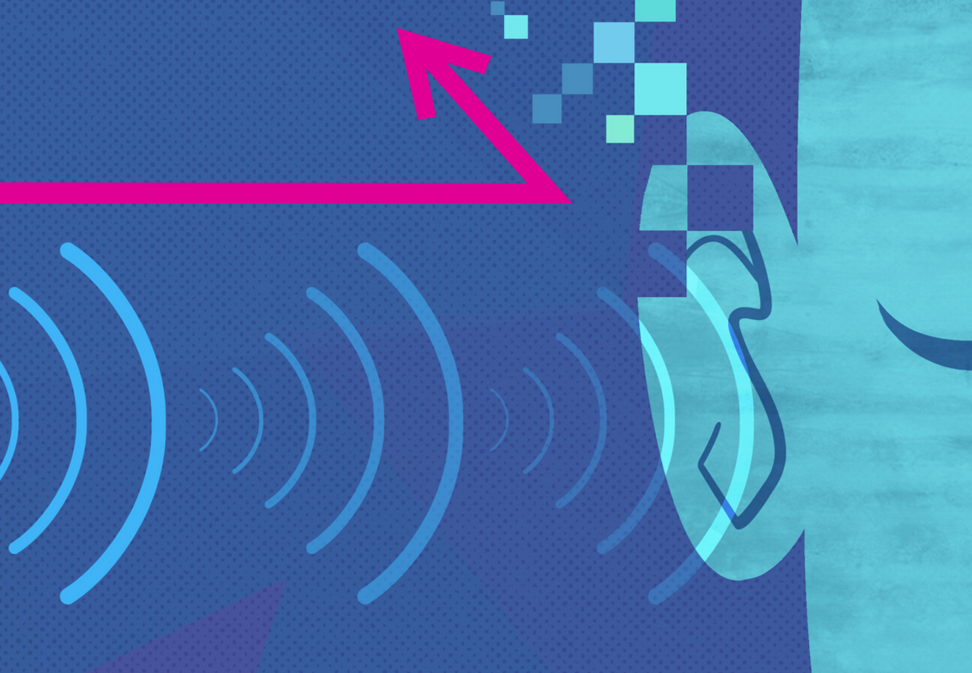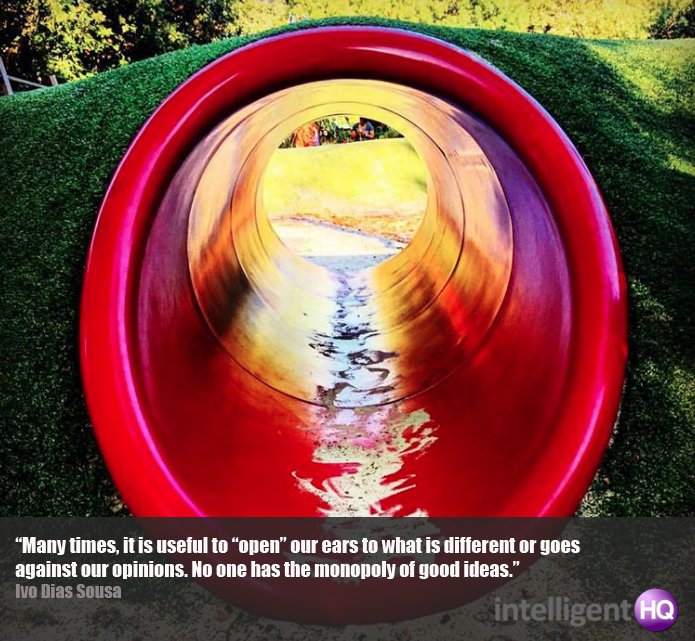
In a way, we are always listening, even when we try not to listen. Its like as if we are always saying the truth even when we are lying.
Imagine a child caught by his mother with the hand inside the cookie jar. Before, his mother has forbidden him to eat more cookies. Nevertheless, the child says to his mother: “I´m not eating cookies”.
Perhaps, the reader his thinking: “how can the child always tell the truth if he is obviously telling a lie? ”
Well. What the child is telling is both a complete lie and, in a way, the truth. When he says that he isn’t eating the cookies, what is really saying is that he doesn’t want to be punished.
The same happens, more or less, with listening even if we are making an effort not to listen. Let me explain. We tend to ear more what confirms what we already think. By another words, what confirms the opinions and “truths” we already have.
Sometimes (more often than we think), our ears are “closed” to what is said around us. In some cases, we are so attached to our “truths” by routine that the most obvious truth can knock at our “door” and we don’t open the door. That doesn’t mean that way of listening can’t be useful. Sometimes, the best course of action is to “close” our ears to what goes against our “truths” and follow the path we already chose.
But this kind of “autism” can’t be good all the time. Many times, it is useful to “open” our ears to what is different or goes against our opinions. None of us has the monopoly of good ideas.
Personally, I confess that sometimes it is easier to write about the necessity to “open” the ears than to do it :).

Listening with an Open Mind
Another way of listening is with an open mind. In essence, is paying attention to the facts. News facts can confirm or disconfirm our opinions and views of the world. An open mind permit us to see the difference between our opinions and views of the world in relation to the person (or people) we are hearing. Hearing with an open mind (at least sometimes :)) is important to our lives. Sometimes what was true in the past isn’t true anymore in the present. But, even if what we know is still true and useful, sometimes we can find new data that present us with more useful ways to act.
A third way to hear is with an open heart. With an open mind we notice differences that can change us and our view of the world. If we cease to hear with an open heart, we make emotional connections. We see reality through the point of view of another person. When we hear with an open heart we become transformed.
Hearing With An Open Heart
This way of hearing requires special skills from my point of view. In a way, hearing with an open heart requires that we have a place inside the heart for the person (or people) we are hearing. That can be a very easy or difficult task depending on who are the other people. Normally, a child has a special place in the heart of a parent. In the case of Palestinians in relation to Israelis (and vice-versa), there is a cycle of mutual violence lasting now for many decades. We can say, with great certainty, that both parts don’t have a place in their hearts for the other parts.
I think this is a thing we acquire with practice. Personally, I think I don’t do a good job hearing with the heart – there is a point worth doing some effort to improve. 🙂
From my point of view, hearing with an open heart requires also another somewhat paradoxical skill: you should not be too attached to the other person (or persons) we are hearing. Let me give a possible example. It is natural that a parents have a special place in their heart for their children. However, if the parents feel that the children belong to them, ear them with an open heart becomes difficult. In that sense, the parents see the children as an extension of them. When that is the case, it is more difficult to see really with the eyes of the children.
It is convenient not to be too attached to the other person we are trying to ear with an open heart. Perhaps it seems contradictory to some readers but the fact that we like or love someone can be an obstacle to hear that person with an open heart.
Clearly, love can be an obstacle to ear with an open heart. One possible reason is that we don’t want to loose a person we love. And because of that we are selective in what we hear from the other person. In that situation, it is difficult to see reality through the eyes of the other person.
Hearing with an Open Will
One other way of hearing even more difficult for me is with an open will. This way of hearing goes one step further in relation to earing with an open heart. We hear with an open heart and, in a way, we go with the flow of what we are hearing. It happens a sort of suspension of our will connecting with the future projected by the words we are hearing.
Personally, I don’t have experience of hearing with an open will very often, particularly in recent years. Two decades ago I used to do it with a friend I lost contact with. For some reason it was really easy to have talks with him on a one to one basis or with more people, exploring a certain subject together. When together we were no longer competing to see which of us was right. Sometimes, we even took the arguments of someone else further even if they were against our original position.
For me, that kind of conversations with my friend and other people were magical. We could be talking for five or more hours. Many times, when I was hearing him there was a kind of fusion with the other person I was hearing. I could sort of suspend my will and I was seeing the future that words projected. Of course, an environment of friendship or, at least, deep trust really helped.
Conclusion
The aforementioned four ways of hearing can be useful for us depending on the situations serving different purposes. However, I (and probably most of the readers) don’t experience very often hearing with an open heart or open will. Probably I should, and the readers too, have more opportunities of training a better hearing. Not only we would feel more connect with the world around us, but also happier.
Note: this article draws freely from the work of Otto Scharmer.
Ivo Dias de Sousa is a Portuguese writer born in Mozambique. Ivo is also a Professor at Universidade Aberta, Portugal, giving courses on information management. Currently, Ivo is interested in using his experience on information management to construct applications (see http://windit-app.com/ ) for smartphones, in collaboration with others. Ivo holds a Master in Statistics and Information Management (Universidade Nova de Lisboa) and a Ph.D. in Information Management (Universidade Aberta). Amongst his main interests are information management, psychology of luck and literature.











